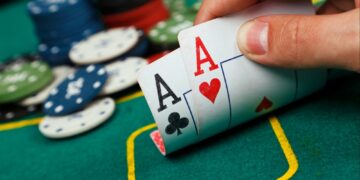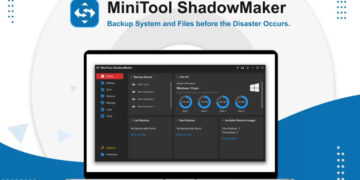A journey towards mastering anything in life begins with a single step and commitment. In the case of online poker, it requires patience, dedication, and an understanding that proficiency will not happen overnight. This article aims to provide you with a structured approach to mastering your online poker skills through practice and study.
The Importance of Understanding the Basics

Understanding the basics of online poker is somewhat similar to building the foundation of a house. It’s a fundamental aspect that you can’t bypass. This doesn’t just involve knowing the rules of the game, but also having a strong grasp of poker lingo and the structure of online poker platforms.
Know the Poker Hand Rankings
This is the first step towards proficiency. Every decision you make in a poker game is influenced by your understanding of poker hand rankings. This knowledge is not hard to acquire but is essential for your journey.
Understanding Betting
Betting is an integral part of poker that significantly influences the game’s outcome. Knowing when to bet, how much to bet, and how to react to your opponents’ bets are skills that require practice and understanding.
Practice Makes Perfect
Having a theoretical understanding of poker is not enough. You must put your knowledge to the test by practicing. This doesn’t necessarily mean playing high-stakes games.
Practicing with Free Games
Start your journey by playing online poker games that allow you to experience the game without risking real money. These games help you familiarize yourself with different game strategies and the pacing of online poker.
Analyzing Your Games
Take the time to review and analyze your games. You may learn more from a single loss than from several wins. Look for patterns in your gameplay, identify your weaknesses, and strategize on how to improve them.
Learning Through Study
To master poker, you must also be willing to learn from others who have more experience and knowledge in the game. The internet is replete with resources that can help you in this journey.
Online Tutorials and Guides

There are many websites, YouTube channels, and online forums dedicated to teaching poker. These resources can be an invaluable source of information and can provide you with strategies you may not have considered.
Books on Poker
Books on poker offer an in-depth look into strategies and concepts that can improve your game. Many professional poker players have written books sharing their insights, strategies, and experiences in the game.
Learning from Other Players
Observing other players can provide a wealth of knowledge. You can learn different strategies, understand various playing styles, and even learn how to read player behaviors.
The Role of Patience and Discipline
Patience and discipline are virtues in the game of poker. Patience allows you to wait for the right moment to make your move, while discipline helps you stick to your strategies, especially when things are not going your way.
Developing a Strategic Mindset
As you evolve in your poker journey, cultivating a strategic mindset becomes inevitable. This involves seeing beyond the current round and considering long-term impacts of your decisions. This element is not about having a single strategy, but rather the ability to adapt your gameplay according to the evolving dynamics at the table.
Recognizing Player Patterns
Poker is as much about people as it is about cards. Observing and understanding player patterns can give you an edge in the game. Be attentive to players’ behaviors, their betting styles, and their reactions to certain situations. Over time, this information can help you predict their moves and make informed decisions.
Adapting Your Strategy
A great poker player knows that flexibility is key. You must be willing to adapt your strategy based on the situation at hand. This might mean playing aggressively in one round and conservatively in the next. The ability to switch gears and adjust your approach is an important skill to develop.
Emotional Control in Online Poker
Poker is a game of highs and lows. It can test your emotional resilience, making emotional control a critical aspect of the game. It’s not about suppressing emotions but effectively managing them to ensure they don’t influence your gameplay.
Maintaining Composure
Maintaining your composure, especially after a big loss or win, is important. Overexcitement or frustration can cloud your judgment and lead to mistakes. Practice mindfulness techniques to help manage emotions during gameplay.
Avoiding Tilt
Tilt refers to a state of emotional frustration that can negatively affect your game. Recognizing the early signs of tilt and having strategies to manage it can significantly improve your performance.
Continuous Improvement through Self-Evaluation
Mastering online poker skills is not a destination but a journey of continuous learning and improvement. Consistently evaluating your performance can help you identify areas of strength and those that need improvement.
Regular Review of Your Games
Set aside some time to review your games regularly. Understand the decisions you made, why you made them, and whether they were effective. This habit will provide you with insights that can guide your future strategies.
Seeking Feedback
Don’t hesitate to seek feedback from other players or mentors. Their perspectives can provide valuable insights into your gameplay, opening up areas for improvement that you may have overlooked.
Conclusion
To wrap up, the road to mastering online poker skills involves an understanding of the basics, ample practice, continuous study, developing a strategic mindset, emotional control, and self-evaluation. The journey might be demanding, but the satisfaction of improving and becoming a better player is a reward in itself. Start your journey today and remember, every master was once a beginner.













































